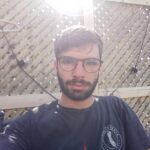Link to Pubmed [PMID] – 28100701
Link to DOI – 10.1093/nar/gkx001
Nucleic Acids Res 2017 Apr; 45(6): 3231-3241
Foreign and self-cytoplasmic DNA are recognized by numerous DNA sensor molecules leading to the production of type I interferons. Such DNA agonists should be degraded otherwise cells would be chronically stressed. Most human APOBEC3 cytidine deaminases can initiate catabolism of cytoplasmic mitochondrial DNA. Using the human myeloid cell line THP-1 with an interferon inducible APOBEC3A gene, we show that cytoplasmic DNA triggers interferon α and β production through the RNA polymerase III transcription/RIG-I pathway leading to massive upregulation of APOBEC3A. By catalyzing C→U editing in single stranded DNA fragments, the enzyme prevents them from re-annealing so attenuating the danger signal. The price to pay is chromosomal DNA damage in the form of CG→TA mutations and double stranded DNA breaks which, in the context of chronic inflammation, could drive cells down the path toward cancer.

